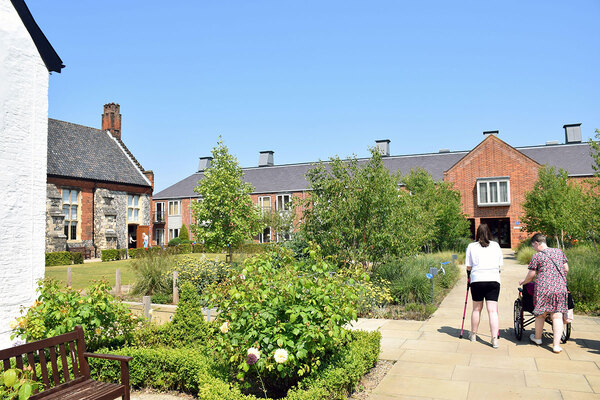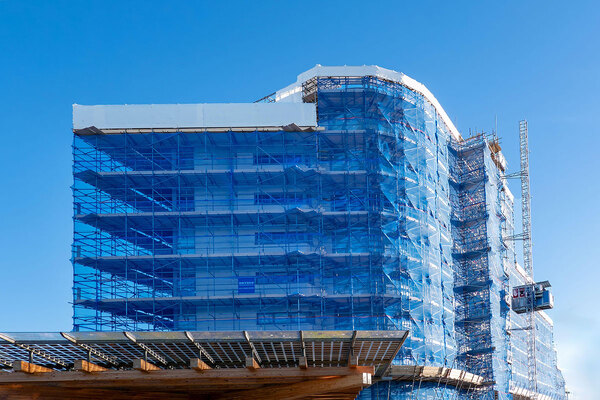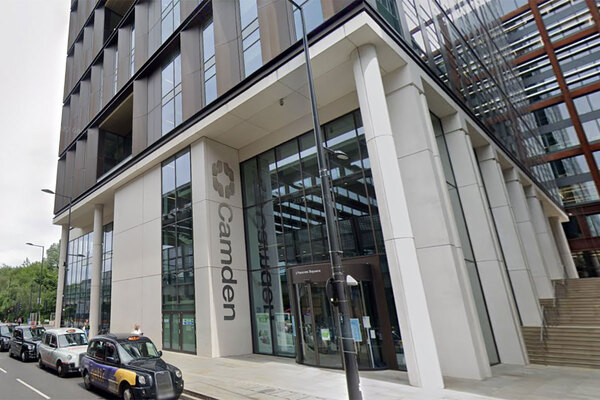The keys to Number 10 are a mandate to unlock good, affordable homes
Sir Keir Starmer has a mandate to unlock 1.5 million homes. There must now be a laser-like focus across the whole of government on delivering them. Reforming planning and giving us more long-term certainty would be a good start, argues Mark Washer, chief executive of SNG
When, later today, Sir Keir Starmer meets the King and receives what the press like to call the keys to Number 10, he has done so on the back of a mandate to unlock the 1.5 million homes his party has promised to build over the next five years.
In opposition and during the campaign, Labour has made welcome noises on housing and indicated that it is an early area of action, with a series of announcements expected as early as next week. Its manifesto may have been understandably light on detail, but it is positive in direction and commits to improving delivery.
So now is the moment for good intentions and plans to go into bricks and mortar. Most importantly, when the inevitable distractions, pressures and hard choices of governing creep in, there must be a laser-like focus across the whole of government on actually delivering good, affordable homes.
Another positive sign from Labour’s campaign is that Rachel Reeves’ incoming Treasury operation seems to recognise that housing – incidentally, at 1.7%, one of the smallest areas government spending – is crucial to their plans for growth and that without housing the rest of the new government’s social and economic agenda will quickly unravel.
Early reform of planning is a good place to start, and the research published by CASE in March could be used help to inform targets, but no one should be under the illusion that it is a silver bullet for delivery or that it will be easy.
Skills, funding and sector confidence are also all essential but in short supply. Even within planning reform, while an element of yimbyism and willingness to “be tough” is needed, places that receive new homes must do so on the basis that what is being delivered adds to their communities and that the homes are sustainable, as well as being a great place to live in.
Poorly delivered housebuilding will undoubtedly generate headlines that erode political capital for housing, further reduce the trust of communities, galvanise opposition and sour progress in what must be a decades-long project.
This is just one area where the housing sector’s long-term placemaking expertise can offer solutions to government. By working in partnership with local authorities and private developers, as well as using tools like our Homes and Place Standard, we can build places that will thrive over generations.
At the election special breakfast at Housing 2024 last week, the overriding view of the panellists representing funders, planners and private developers – as well as my own view on behalf of housing associations – was that as much as we need change, we also need medium to long-term stability. Not only to deliver the homes that are needed, but to support essential improvements for existing customers.
For this to happen well, the new administration will have to work closely with the sector and be open to solutions we propose, which will help them make the right choices quickly where change is needed. Ministers must then also resist the urge to tinker so that we can get on with the job of providing homes.
Recent instability of funding and regulation has left its mark, and the signs of a sector under huge strain should be very plain to the incoming Labour team. We’ve seen the terrible impact on some social housing customers of systemic failures, at least partly due to lack of long-term funding and investment in the sector.
Even some of the strongest organisations are now seeing credit rating downgrades, or for very legitimate reasons pulling back from developing the new homes that are needed by both millions of people and the government, if it is to meet its ambitions.
“Poorly delivered housebuilding will undoubtedly generate headlines that erode political capital for housing, further reduce the trust of communities, galvanise opposition and sour progress in what must be a decades-long project”
As last week’s Inside Housing Biggest Builders survey showed, SNG is growing. But even as the second-largest builder, which is bucking the overall trend by actively seeking new sites and opportunities, we aren’t immune to the challenges the whole sector faces.
Our ambitious plans to build 25,000 homes over the next decade can only be fully realised with the stability of a long-term, 10-year rent settlement that is fair for our customers while giving providers the resources we need to deliver. At least maintaining Consumer Price Index plus 1% is essential to stem the immediate crisis, but this is an area where openness to sustainable solutions from the sector to a model that is showing strain would benefit us all.
The statistics on the housing crisis are well rehearsed, so I won’t repeat them. But it is never far from my mind that behind each of the figures used to describe the thousands, hundreds of thousands, and millions of people affected in different ways by the housing crisis are individuals and families facing preventable tragedies, lost futures and ongoing misery. This is what drives our work, and no one in this new government can afford to lose sight of it.
Mark Washer, chief executive, SNG
Sign up for our daily newsletter
Already have an account? Click here to manage your newsletters













